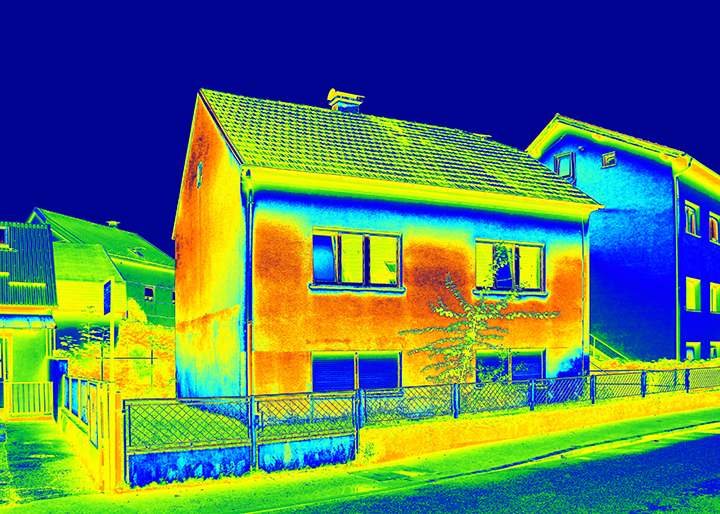Energy Savings for Your Single-Family Rentals

Achieve Savings Through Regular Inspections & Proactive Maintenance
By Jason Myers
Conserving energy is not just good for the environment anymore. It is also good for your bottom line. Being smarter about energy use yields home energy savings and enhances the value of your rental properties. It is one of the easiest win-win scenarios possible today.
Most investors like the idea of saving energy, but they assume the process will be too time-consuming or expensive to set up. Fortunately, there are numerous simple things you can do to cut energy costs that will not break the bank up front.
Here are nine ideas to help you cut energy costs on your single-family rental (SFR) properties:
1. Do a Home Energy Audit
The best way to cut energy costs is to first determine your baseline. An energy audit can provide this information. You can work with a certified auditor to evaluate your properties and identify and prioritize potential improvements or you can opt for a DIY energy assessment.
Typical recommendations after an energy audit include adding insulation in your roof or walls; improved heating, cooling and hot water equipment; and installing new ventilation, LEDs and smart thermostats.
2. Install LED Lighting
If you have not already made the switch to LED lighting, it is an easy way to enhance your energy savings. A single ENERGY STAR-certified LED light bulb requires approximately 90% less energy than traditional incandescent bulbs, which can save you around $55 over the life of the bulb. Even better, LED bulb life is about 15 to 25 times longer than an incandescent so you will be buying fewer bulbs overall.
3. Save with Air Sealing
One of the most efficient (and often simple) ways to lower your heating and cooling costs is by sealing air leaks using weatherstripping and caulk. First have an energy assessor test your home for air tightness to determine if and where leaks are occurring. They will likely conduct a blower door test, which can identify leak locations and help determine if any areas of your property need additional insulation.
4. Energy-Efficient Appliances
Your best bet for achieving home energy savings via appliances is to upgrade the current appliances to products with an ENERGY STAR label when they break down or age out. This goes for everything from microwaves and dishwashers to hot water heaters, stoves, washers, dryers and refrigerators.
In fact, the U.S. Department of Energy estimates that you could save hundreds of dollars annually by replacing a 10-year-old refrigerator with a new ENERGY STAR model, and an ENERGY STAR hot water heater could save you up to $3,500 in energy costs over its lifetime. Have your property services partner inspect and audit the current appliances across your portfolio to create a database of information including the current ENERGY STAR rating, make/model and serial number, a life-of-product estimate, and recommendations for newer energy-efficient options when the time comes.
5. HVAC Preventive Maintenance
Heating and air conditioning account for nearly half of residential electricity consumption, so keeping your HVAC system in top condition is smart for both conserving energy and prolonging its life. Preventive maintenance checks can help with both. During a typical check, HVAC air filters are replaced, and condensate lines are “blown out” to help prevent back-up, keep the system operating efficiently and reduce larger repair expenses down the road.
Schedule regular checkups like these for preventive maintenance at least twice a year with your property services partner, and put them in charge of filter changes as well. This proactive combo can help prevent damage to your system and avoid costly emergency repairs as well as deliver home energy savings.
6. Smart Meters
The ability to monitor energy usage in nearly real time is not a futuristic notion; it is already here, thanks to smart meters. Installing these gauges can allow your properties to communicate with their respective utility providers, improving reliability through faster responses to outages. You can also enhance efficiency in your systems by getting a better handle on residential usage and how to make changes to lower costs.
7. Window Upgrades
Windows can be responsible for as much as 30% of a home’s energy use, so upgrading them can be a priority that pays off in the long run. If it is time for your windows to be replaced, this is a perfect opportunity to move to more energy-efficient models.
If your windows are still in good condition, you can make strides in energy efficiency through smaller upgrades like eliminating air leaks, caulking and weatherstripping, applying solar window films and replacing window coverings with more energy-efficient options.
8. Insulation Improvements
Are your SFR properties well insulated? This one measure can help reduce energy use, make the interior of your homes more comfortable for tenants (and thus reduce temperature complaints) and deliver home energy savings of up to 10%. Before making improvements, have a professional check for air leaks as well as assess the insulation levels in your walls, attic, basement and crawlspace to help determine a property’s needs and priorities.
No matter how your rental agreements are structured, making improvements with the goal of home energy savings in mind can have long-term benefits for both you and your tenants. Energy costs go down (a draw for many renters), and you can lengthen the life of your HVAC system. A few simple changes really can add up to savings over time.
9. Find the Right Partner
A good property services partner can help you determine the most strategic green upgrades for your properties as well as execute many of them while also performing preventive maintenance that ensures you get the most out of your SFR investments.
Learn more at mcs360.com














